-
 Ever Wondered How to Make Paneer at Home? Here is the Complete Guide to Take Out Soft and Creamy Paneer from Milk at Home (2021)
Ever Wondered How to Make Paneer at Home? Here is the Complete Guide to Take Out Soft and Creamy Paneer from Milk at Home (2021)
-
 Gained Extra Weight in the Lockdown? Best Slimming Tea to Get in the Right Shape and Live a Healthier Life
Gained Extra Weight in the Lockdown? Best Slimming Tea to Get in the Right Shape and Live a Healthier Life
-
 From Usage in Skincare to Treating Wounds Quickly, Castor Oil Has a Lot of Applications You May Have Never Heard of: Benefits of Using Castor Oil (2021)
From Usage in Skincare to Treating Wounds Quickly, Castor Oil Has a Lot of Applications You May Have Never Heard of: Benefits of Using Castor Oil (2021)
Key Elements of Holistic Healing Courses
Purpose Behind Holistic Healing

An individual’s personal well-being involves being physically fit, emotionally strong, socially vibrant, spiritually high and intellectually forward. Alternative medicine, holistic practices, natural healthcare or integrative medicine, whatever you call them, these are some of the frequently used terms to describe a wide range of healing practices that fall outside the gamut of conventional medicine and clinical treatments. When there’s something wrong in our bodies it demands our attention and it is natural we’d seek assistance to be relieved of any physical discomforts. However, not all ailments are completely cured or healed by medicine and we cannot ignore the root cause of the problem.
Holistic healing aims to address every part of an Individual’s being and it’s certainly not a ‘one time fix’. It is a progressive journey of seeking answers to living better, being healthier and focusing on being whole. In other words, it is more often a way of life that aims at achieving a mind-body connection.
Becoming a Holistic Healer

Holistic Healing is a growing business and more career opportunities are coming up in the field everyday world over. If you’re thinking of becoming a Holistic Healer, here’s how you can get started.
To begin with, understand what a holistic therapist does. A holistic practitioner is someone who applies any form or number of holistic therapies that may include energy healing, touch therapy or tools-aided treatments focused on healing the body as a whole viz-a-viz just healing it physically. In that respect, you need to be empathetic, caring and avidly interested in people in order to make a difference.
Holistic Therapies: There is a huge number of holistic healing therapies available world over that vary in their genuineness and proven medical benefits. From practices like Reiki, Pranic Healing, Holistic Massages, Naturopathy to Acupuncture, Meditation, Herbalism, Ayurveda or Traditional Chinese Medicine, the options available are endless and it is best to research well before making a decision. Most of these therapies are complementary to each other and hence it’ll be a good idea to learn & practice a few different therapies.
Career: The best way to decide on a holistic therapy is to understand how you’d like to progress in your career - whether you’d be interested in being a counsellor or as a therapist, whether you’re getting into learning for self-healing and awareness or to help others around you. Each therapy type comes with its own long list of requirements to be met - educational requirements like certificates, practising hours etc. In some cases, however, if you are planning on your own practice, all of the requirements may not be mandatory.
Career Opportunities

There are plenty of career opportunities for holistic health practitioners and they continue to grow. With a majority of practitioners opting for personal practices, you can also aim for work as a counselor, a complementary therapist or physician in a hospital based on your credentials or opt for working in a health club/spa as a trainer, therapist or counselor. Each opportunity requires different levels of education and expertise that also pay lucratively at par with your experience.
Holistic Healing Courses in India
Clinical Aromatherapy
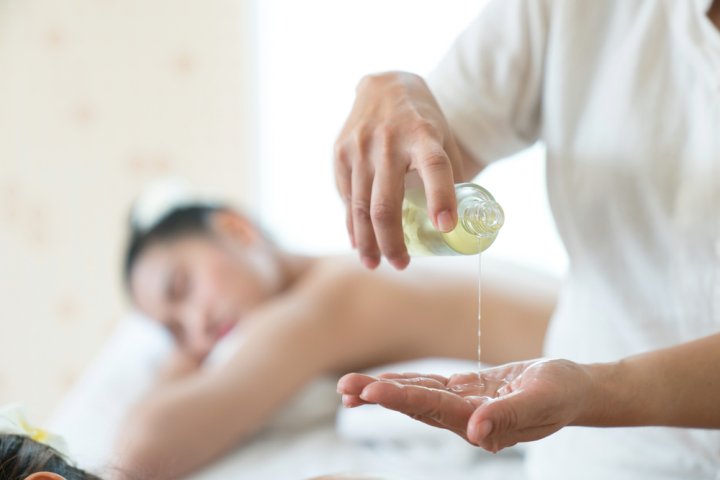
Aromatherapy makes use of healing properties of essential oils to address a variety of health issues ranging from skin care, mental problems, insomnia, chronic fatigue, to hormonal or musculoskeletal problems. It involves understanding the olfactory system and the skin as well as the formulation and application of different essential oils. The aim of this form of therapy is to ease the patient’s symptoms.
A clinical aromatherapist is a holistic practitioner who has completed a certain level of professional and formal education in the field. Typically an aromatherapist needs to be tolerant, calm, empathetic, positive and confident with good communication & listening skills.
Studying aromatherapy is exciting and challenging. It combines core sciences, product formulation & blending methods. Typically you will cover botany, chemistry, physiology, anatomy, blending techniques, safety and ethics, as well as a holistic healing framework. A few institutes in India offer courses in aromatherapy and the choices include certificate/diploma/graduate courses through regular or distance learning options. The minimum criteria are usually 10+2 with the course duration being a week to 3 years like the ones offered by Holy Angels College of Alternate Medicine. A number of beauty care/massage therapy centres also offer aromatherapy courses or workshops.
Career: In terms of career opportunities, alternative medical clinics that offer alternative healing treatments employ aromatherapists largely, along with spa, beauty centres, some hospitals, chiropractors, massage clinics, cruise ships, hotels/resorts, etc. Aromatherapists can also set up their private practices and begin with treating their friends and family and then build on their network of clients. Other forms of career opportunities in the realm of aromatherapy include being an aromatherapy counsellor, essential oil retailer, custom aromatherapy blender, aromatherapy writer, massage therapist or an aromatherapy teacher.
Acupressure Therapy
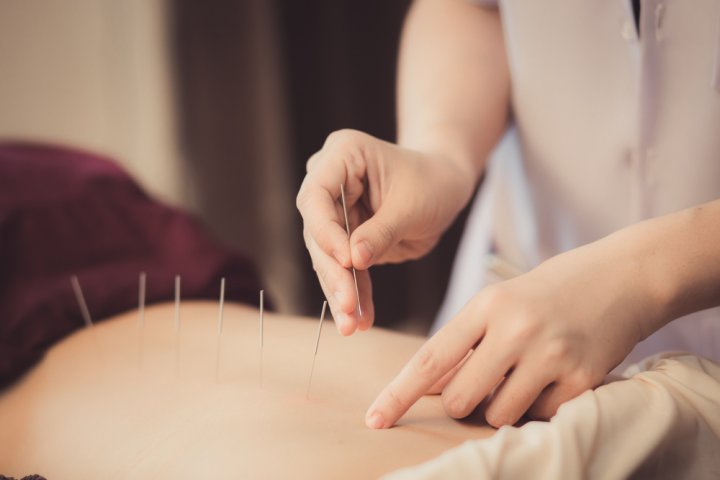
A traditional Chinese medicinal technique, acupressure or Asian bodywork therapy, it involves applying pressure on specific parts (acupoints) of the body to alleviate symptoms and improve overall wellness.
It is a hands-on therapy which can be used in combination with reflexology. This encourages a healing response on hands and feet with massage, thereby leading to a holistic and highly effective outcome. Acupressure is based on the principles of the Chinese medicine, according to which the human body has several meridian points where the essential life force energy flows and gets blocked due to stress, mental or physical discomfort, resulting in sickness. With the use of acupressure therapy, these energy blocks can be removed and energy is restored.
Acupressure is used to treat a large variety of diseases and body conditions including migraines, back pain, mental strain, chronic joint disorders, allergies, toothaches and more! It can also be used for children safely. This form of therapy is gaining popularity all over the world because of its lack of any side effects and pocket-friendly prices and the fact that it’s easy and simple to learn. It is also quite adaptable in terms of the use of different tools such as back or hand rollers, acupressure mats and seats, etc.
Study Opportunities: Many health care centres and colleges in India offer diploma, degree, PG diploma courses in acupressure therapy with 10+2 being the minimum qualification required to apply for it. The duration of the course depends on the institute you apply at ranging from 3-6 months to 2-3 years. Check out the acupressure diploma course offered by Alternative Medicine Community College.
Career: You can also become an acupressure therapist by clearing a certificate course in traditional Chinese medicine therapies in addition to associated degree programs and some practical experience. An acupressure therapist can find jobs in public health clinics, sports centres, hotels/resorts/spa and salons or venture into the travel, amusement or recreational organizations to provide personal care services or even start their own practice.
Music Therapy
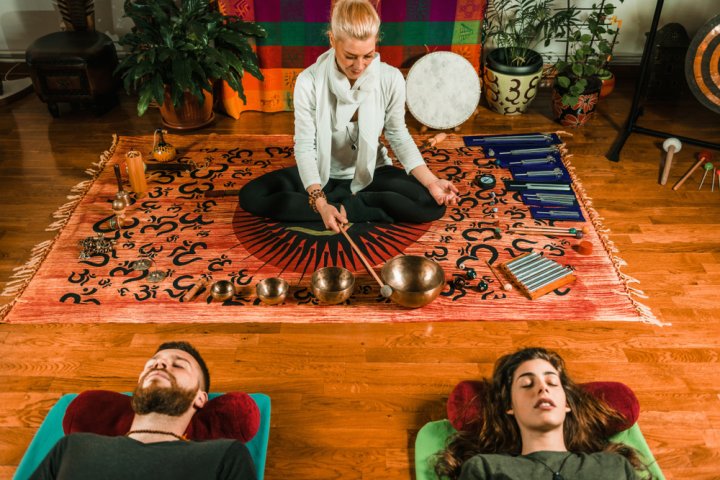
Music therapy is an established alternative healing profession in which music is used therapeutically to address physical, mental, emotional and social challenges or disability. More of an expressive therapy, music therapy can particularly aid those suffering from physical disabilities, speech & hearing impairments, and even mental disorders.
Study Opportunities: Music therapy is known to promote brain and motor activities, manage stress, alleviate pain, improve communication and facilitate unique opportunities for social interaction. The therapy allows all kinds of musical experiences to be integrated into one form, involving listening to music, playing music or even writing music. Globally, music therapists are more or fewer graduates or have a higher certification in music therapy from reputed colleges like Chennai School of Music Therapy. However, in India, it is an emerging field and hence such courses may be rare, with the exception of a few diplomae or certificate courses.
Career: Music therapists should feel a calling to help people, care about them and be able to extend emotional support to their clients and families. Along with empathy and patience, music therapists must possess high levels of musical talent plus an appreciation for varying healing approaches. Usually, they work in rehab treatment facilities, medical centres, palliative care centres and agencies for people with various challenges. Many, work as private practitioners as well.
Clinical Hypnotherapy
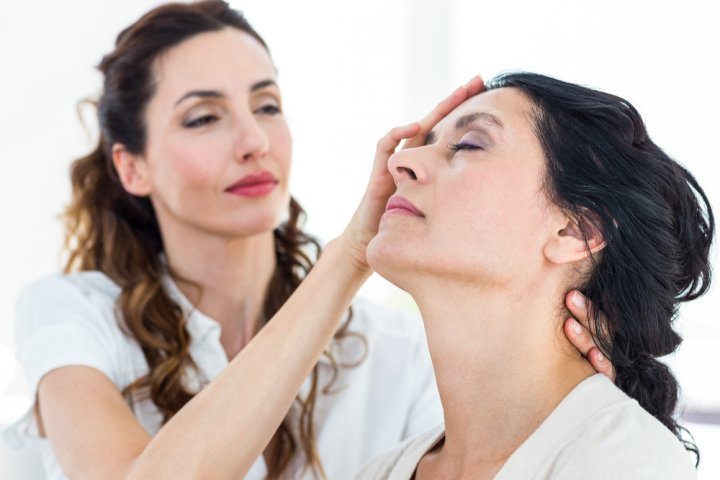
Clinical hypnosis is an altered state of awareness/ consciousness which is used by a trained professional for treating psychological & physical problems. It helps the individual reach a high state of relaxation where the ability to absorb information and to concentrate is enhanced.
Research shows that hypnotic communication and suggestions can effectively alter aspects of a person’s physiological and neurological functions. In the realm of mental health, this form of therapy is used to treat issues such as phobia or inherent fears, anxieties, chronic addictions, sexual problems, and poor self-esteem. In the field of medicine, it is used in areas like pain control, burn therapy, dentistry, and more.
Hypnotherapy uses the amplified awareness to help explore the patient's condition more deeply, guided by a clinical hypnotherapist. Despite being guided by the therapist, the patient always remains in control of his/her will, behaviour & feelings. The patient has complete recollection of everything that occurs during the hypnotic state and can come out of it when he/she pleases. Hypnotherapy also lends itself to past life regression therapies that used for spiritual healing purposes like clearing karmic baggage and releasing any binding connections to your past.
Study and Career: A typical hypnotherapy course like the one offered by The Hypnotherapy School of India requires a minimum of 128 hours of instructional and practical training to be qualified as a clinical hypnotherapist and it should be accredited to a renowned body of certified hypnotherapists to ensure its authenticity.
Pranic Healing
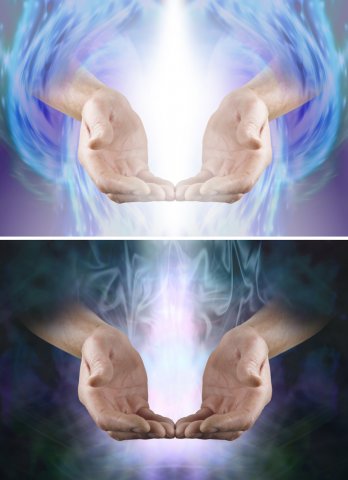
Pranic healing is among the many healing techniques (reiki, crystal Healing, Qigong etc) that are known to influence the natural energy fields. Such energy healing therapies are not scientifically proven but there’s evidence they do help relieve symptoms of health issues like stress, depression, pain and anxiety.
Particularly popular in India, pranic healing is an unconventional mode of holistic healing which works on the belief that life force energy (prana) within individuals can heal ailments of the body.
Pranic healing involves a ‘no touch’ form of healing and functions with a significant tool which is called scanning that allows a healer to sense a person’s aura and chakra sizes, their energy levels and identify the problem areas. For instance, a person suffering from migraine goes through it on account of imbalanced energy, dirty red in colour that shifts from his brain to the solar plexus chakra in the abdominal area. This can be sensed by a pranic healer who can quickly scan and cleanse the areas for quick relief.
Several stories of astounding healing have been documented with the use of pranic healing that includes a wide range of psychological and physical conditions healed, including mental illnesses, cancer, headaches, flues, back pain, chronic diseases and many more.
Study and Career: Since pranic Healing is an alternative healing therapy, it may not be officially available in colleges or institutions in India, with the exception of pranic healing organizations like World Pranic Healing Foundation that provide courses at varying levels of basic, advanced and psychic self-defence. Usually, it takes 2 days for each level of the courses and then practising it religiously will only enhance your personal power to practice and serve! To make a success out of anything calls for discipline and dedication, and these are two important qualities of a good pranic healer, which further requires ample time to personally evolve in the field by way of meditations, study and practice on self-healing!
Homeopathy
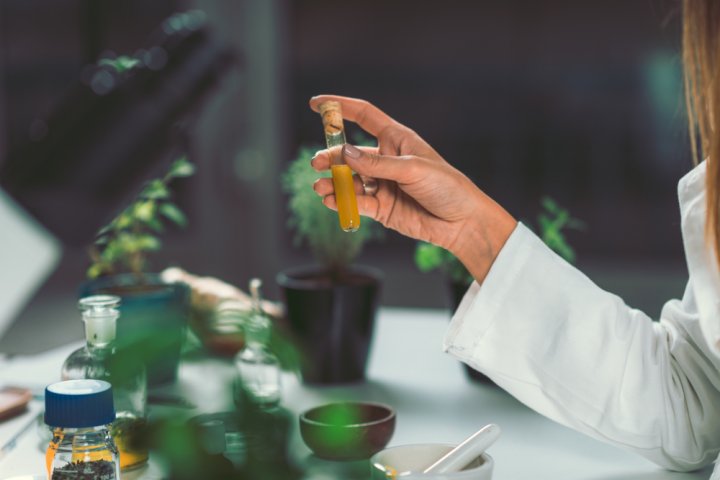
Created by Samuel Hahnemann, homoeopathy works on the premise that a substance that drives the symptoms of a disease in a healthy person can cure similar symptoms in sick people. It is a safe, gentle and natural way of healing the body, restoring it and enhancing your overall health. It can be used to treat acute ailments like migraines, sore throats, infections, chronic diseases and more. Homoeopathic medicines or remedies that are derived from natural sources like plants or minerals are environment-friendly. They are available mostly over the counter in most pharmacies, health food stores, grocery stores, and online stores and are relatively economical.
A homoeopath will regard the symptoms of a body’s attempt to restore itself back to health and balance, which is why he may choose a remedy that supports the symptoms and not really suppress them, as is the case in conventional medicine. For instance, in conventional medicine, a person suffering from cold may be given an antihistamine to dry the running nose & watery eyes, however, it also has its side-effects like drowsiness and constipation, while a homoeopathic remedy will only restore health naturally without any side effects! Homoeopathy also identifies that no two people are the same and as such their diseases are unique & different from the others somewhat and hence they both will receive different homoeopathic remedies.
Study and Career: Homoeopathic practitioners need to be familiar with their patients’ physical and emotional states of being, to be able to devise appropriate remedies for them, for which they need to have proficiency in the integration of plant, animal and mineral substances in the body. There are a number of colleges like Guru Gobind Indraprastha University offering degree studies in this field. You can also find diploma/certificate courses if you are interested in self-learning. Natural clinics, homoeo clinics, both in India and abroad plus industries involved in the preparation of homoeopathic products are options for homoeopathic practitioners.
Ayurveda
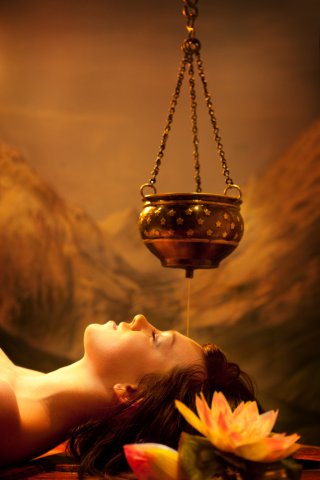
Highly popular in India, Ayurveda has developed over 3,000 years ago in the country and is based on the belief that health and wellness are dependent on an intricate balance between the mind-body & spirit. When the body balance is disrupted, some of the common causes behind such blocks are genetic or birth deficiencies, climatic or seasonal changes, injuries, age or emotions. Ayurveda remedies aim at reducing or eliminating these issues.
This system further believes that the 5 basic universal elements of space-water-fire-air & earth, combine to form three vital life force energies called doshas which control the body’s way of functioning. These are vata dosha (space and air elements), pitta dosha (fire and water elements) and kapha dosha (water and earth elements). Each of these energies manages a different body function and any ailment or health issues that may develop in the body are connected to the balance/imbalance in these energy fields.
An Ayurvedic therapist’s objective is to create a treatment plan customized for each individual. The treatment’s designed to cleanse the body of all kinds of toxins like undigested food which can lead to illness, reduce the symptoms of illness and restore the body to a state of harmony and balance. In lieu of this, the therapy may include blood purification techniques, massage, use of medicinal oils, herbs, laxative and enemas.
Study and Career: In terms of the availability of Ayurveda courses in India, there are programs ranging from Ayurveda for beginners to diploma courses, a practitioner's course to therapy courses in colleges like Government Ayurveda College, Thiruvananthapuram. The best ayurvedic practices are found in Kerala, however, there are courses found almost in all the cities in India. The courses are usually accredited by NABH (National Accreditation Board for Hospitals & Healthcare).
Emotional Freedom Technique
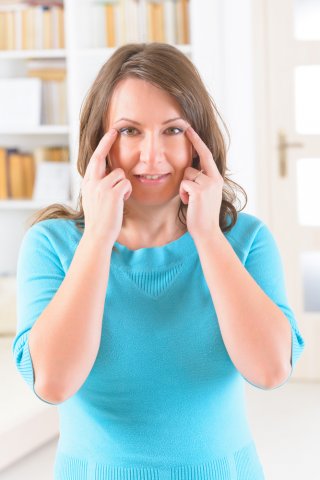
Emotional Freedom Technique (EFT) is an alternative healing form of counselling that uses different healing theories including acupuncture, NLP, thought field therapy & energy medicine. Advocates of EFT believe that tapping helps one access their body’s energy and send signals to the part of the brain that manages stress and that stimulating the different meridians through EFT tapping can reduce the negative emotion/stress that your condition presents, restoring balance to your disrupted energy field.
Backed by evidence, EFT shows significant changes in the treatment of all kinds of emotional and physical conditions in an individual and treatment vary from person to person sometimes bringing instant relief, and sometimes it takes a considerable amount of time. Tapping provides relief from chronic pain, disorders, addictions, phobias, emotional difficulties and physical diseases. The basic EFT technique requires you to focus on a negative emotion/fear/anxiety or anything that’s bothering you and whilst you concentrate on the issue, using your fingertips to tap 5-7 times on each of the 8-12 meridian points, thereby tapping into your body’s own energy and healing prowess.
Study and Career: Most people prefer learning EFT for the purpose of self-healing and hence don't really look for qualifications/certifications. If you're looking to enter the field for the purpose of practicing and serving others, then a certified training program like EFT Trainer program offered by Vitality Living College can be useful for you.
Crystal Healing
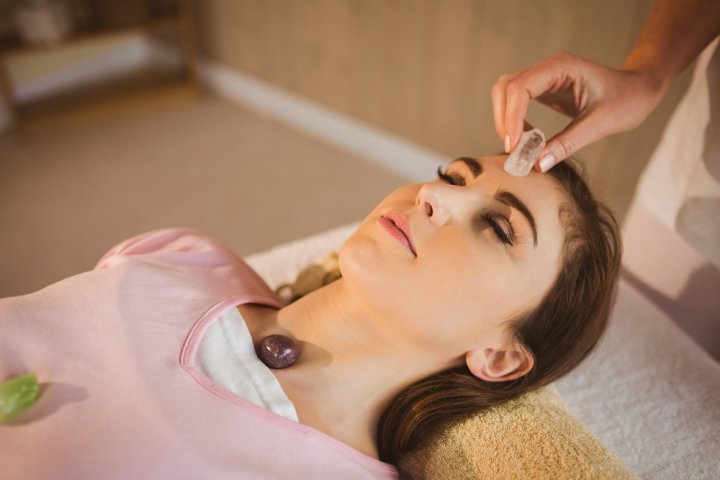
Crystal Healing is a form of healing therapy where crystals and other stones are placed on the body to cure illnesses and prevent disease. The purports of crystal healing believe that the crystals choose you rather than you choosing them. If you walk around a room full of crystals, see which one stands out to you, and whether it has spectacular colours, unique shape or pattern, every crystal will have a unique signature that can work in clearing block, warding negativity off and healing you.
Crystals act as channels for healing allowing positive and universal life force energy to flow into the body, making way for negative and disease-ridden energy to flow out. Irrespective of whether you use crystal healing independently or in combination with another alternative medicine form, crystals will only add to the healing experience and amplify recovery quickly. They can heal at all levels of physical, mental and spiritual well-being and balance the chakras which function as the storage space for our energy fields. They also cleanse our auric bodies, thereby eliminating various ailments out of our system.
Study and Career: In a crystal healing course like the one offered by Maayaa International Healing School, you get to learn about all kinds of crystals, their structures and healing benefits and how to choose them, in addition to important information on how to store, cleanse, power and recharge them. A crystal healing therapist has extensive knowledge about the crystals, their composition, energies, how they heal, how to place them and what crystal will suit which individual. You can learn crystal healing therapy from an Independent practitioner or through an institute.
Naturopathy
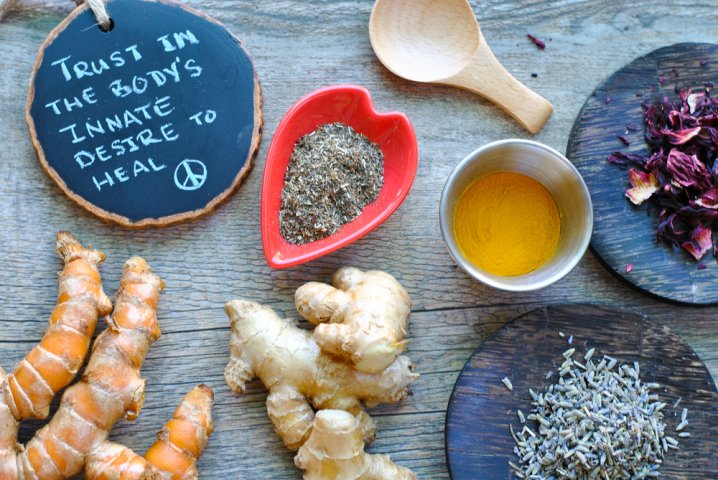
Naturopathy helps the body restore its balance with the use of natural elements. Depending on the level of toxicity and disorder in the body, naturopathy works out to be a comparatively natural option as it uses completely natural and drug-free elements in addition to focusing on the root cause behind all ailments and disorders as opposed to just removing the symptoms of the disease.
Naturopathy encompasses a variety of healing tools like massage, acupuncture, nutritional counselling, herbs and more to help the body heal itself. Naturopathy can treat chronic conditions that aren’t responding to conventional medicine and can include issues like sleep deprivation, chronic fatigue, digestive disorders, diabetes, blood pressure, depression, and more.
Naturopathic Therapists understand healing is to identify and understand an individual’s context of illness, rather than just prescribing medicines. In India, there are a number of colleges like Aditya Yog Naturopathy Hospital and Research Institute that offer courses in naturopathy at various levels and in terms of opportunities to work as Naturopathic Therapists, one can work in collaboration with government or private hospitals, health centres, or work as independent consultants as well.
Bonus Tip: How to Seek a Holistic Healer?

A holistic healer is someone who can help identify the cause behind the discomfort and pain we experience and how these symptoms imbalance us physically, drain us emotionally, overwhelm our mental aptitude & pull us back spiritually. When a holistic treatment is sought, every aspect of a person’s life is looked into and dealt with. It is only fair then that you look into some basic but important aspects of your healer’s background:
- Holistic healers look at a person in their entirety to arrive at a comprehensive assessment and use the information shared by the patient to make recommendations on treatments appropriate for him/her. Just like there’s an assortment of holistic healing therapies to offer, each healer’s different in the way he/she operates
- Pay attention to how they function, their areas of expertise and of course their experience. A holistic practitioner with a formal education in both conventional & holistic practices may be tough to look out for their credentials. Don’t hesitate to see them before starting a consulting session. Client testimonials can also help you gauge their skill set.
- Indian healing practitioners are today getting formal qualifications but many have earned the basis of their credentials their self-learning and practice. Such people have a natural instinct which is relatively stronger in comparison to others around them and skills which have been honed with years of meditation, healing and practising. To help you steer clear of quacks or scams, look out for warning signs like – anyone offering miraculous results/making unrealistic promises; those offering treatments that can cure an unrealistic variety of diseases.
- When on the lookout for a healer, see how comfortable you are with the person you meet and whether their practice makes you feel at ease, in terms of the space they have, the staff or the kind of treatments they offer. All information should be easily accessible and patiently explained to you with a clear break-up of the fees, with no hidden charges.
- The relationship between you and your holistic healer’s a personal connectand hence you need to be absolutely at ease with him/her, for it will mean that you share your innermost feelings, thoughts, personal history and fears with them and they, in turn, accept it all with complete understanding, patience and no judgment. How you feel about the healer will be mostly instinctive or from the heart. Allow yourself to listen and tune in to gauge if the person and their treatment will help you or not.
- Albeit, the holistic practitioner will control the alternative treatments you receive they still need to exercise their expertise like a medical professional, respect your privacy, understand your comforts/discomforts and be smart enough to understand whether something’s right/working for you or not. Any anxiety or nervousness you feel during treatment should be noted and worked on without violating your self-respect or personal dignity. You should never be forced into receiving something you aren’t comfortable with!
-
 Ever Wondered How to Make Paneer at Home? Here is the Complete Guide to Take Out Soft and Creamy Paneer from Milk at Home (2021)
Ever Wondered How to Make Paneer at Home? Here is the Complete Guide to Take Out Soft and Creamy Paneer from Milk at Home (2021)
-
 Gained Extra Weight in the Lockdown? Best Slimming Tea to Get in the Right Shape and Live a Healthier Life
Gained Extra Weight in the Lockdown? Best Slimming Tea to Get in the Right Shape and Live a Healthier Life
-
 From Usage in Skincare to Treating Wounds Quickly, Castor Oil Has a Lot of Applications You May Have Never Heard of: Benefits of Using Castor Oil (2021)
From Usage in Skincare to Treating Wounds Quickly, Castor Oil Has a Lot of Applications You May Have Never Heard of: Benefits of Using Castor Oil (2021)
-
 जिम जाने के लिए चुने यह 10 2020 के सबसे बेस्ट जिम बैग्स जो है दिखने में बेहद शानदार और बेहतरीन। साथ में कुछ सुझाव और अन्य जानकारी ।(2020)
जिम जाने के लिए चुने यह 10 2020 के सबसे बेस्ट जिम बैग्स जो है दिखने में बेहद शानदार और बेहतरीन। साथ में कुछ सुझाव और अन्य जानकारी ।(2020)
-
 Get That Well Toned and Perfectly Sculpted Body in the Comfort of Your Home. Your Quick Guide to the Best Home Gym Equipment in India and Why You Need to Get One Now (2021)
Get That Well Toned and Perfectly Sculpted Body in the Comfort of Your Home. Your Quick Guide to the Best Home Gym Equipment in India and Why You Need to Get One Now (2021)
Research Your Institution!!!
Holistic healing is not a new concept and has been available in India since ages. But with the new awareness spreading, it has gained new traction and more people are preferring it to traditional English or allopathy medicine. But like any other course, you need to find reputed institutions. There are many illegal institutions without proper accreditations offering degrees at attractive fees. Also, make sure you get some hands-on training under an experienced practitioner before setting up your own practice. Practice makes perfect!

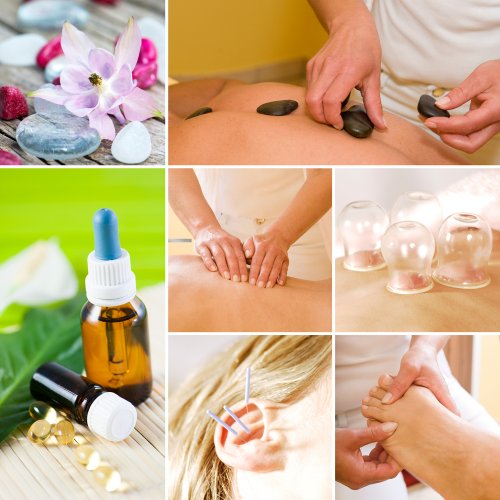
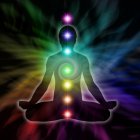
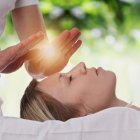






 Highlight the Best Facets of Your Incomparable Beauty: Discover the Best Face Highlighter Currently Available in India and Everything You Need to Know About Using Face Highlighters for Maximum Effect (2023)
Highlight the Best Facets of Your Incomparable Beauty: Discover the Best Face Highlighter Currently Available in India and Everything You Need to Know About Using Face Highlighters for Maximum Effect (2023)
 Forget the Blemishes and Get that Picture Perfect Flawless Radiance on Your Face: Check out the Best Foundations for Oily Skin Currently Available in India and Everything You Need to Know About Makeup Foundations (2023)
Forget the Blemishes and Get that Picture Perfect Flawless Radiance on Your Face: Check out the Best Foundations for Oily Skin Currently Available in India and Everything You Need to Know About Makeup Foundations (2023)
 Make Your Presence Felt Wherever You Go: Discover the Best Perfumes Under 2000 for Both Men and Women to Announce Your Arrival and Make Any Occasion Memorable (2023)
Make Your Presence Felt Wherever You Go: Discover the Best Perfumes Under 2000 for Both Men and Women to Announce Your Arrival and Make Any Occasion Memorable (2023)
 Protect Your Oily Skin from the Harmful Rays of the Sun: Discover the Best Gel Based Sunscreens for Oily Skin and Everything You Need to Know Before Buying One (2023)
Protect Your Oily Skin from the Harmful Rays of the Sun: Discover the Best Gel Based Sunscreens for Oily Skin and Everything You Need to Know Before Buying One (2023)
 Minor Blemishes and Wrinkles Affecting Your Confidence? Check out the Best BB Creams to Conceal Your Worries and Nourish Your Skin to Restore the Healthy, Radiant and Glowing Complexion Back Again (2023)
Minor Blemishes and Wrinkles Affecting Your Confidence? Check out the Best BB Creams to Conceal Your Worries and Nourish Your Skin to Restore the Healthy, Radiant and Glowing Complexion Back Again (2023)
